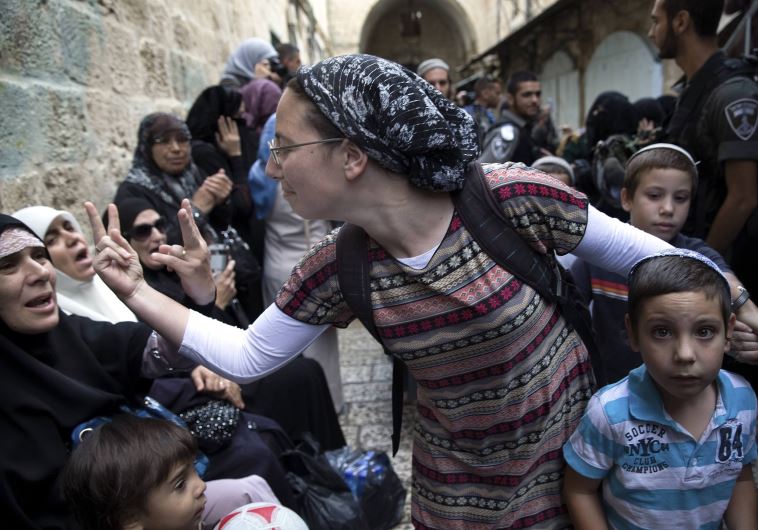Commentary: The conversion challenge
A solution is needed before Israel turns into two states – one housing a Jewish people and the other, those who are not Jewish according to halakha.
 An Israeli woman and a Palestinian woman gesture at one another during a protest
An Israeli woman and a Palestinian woman gesture at one another during a protest